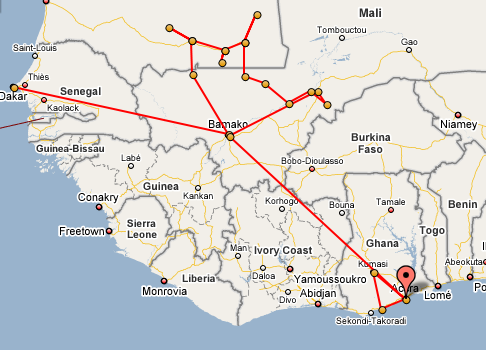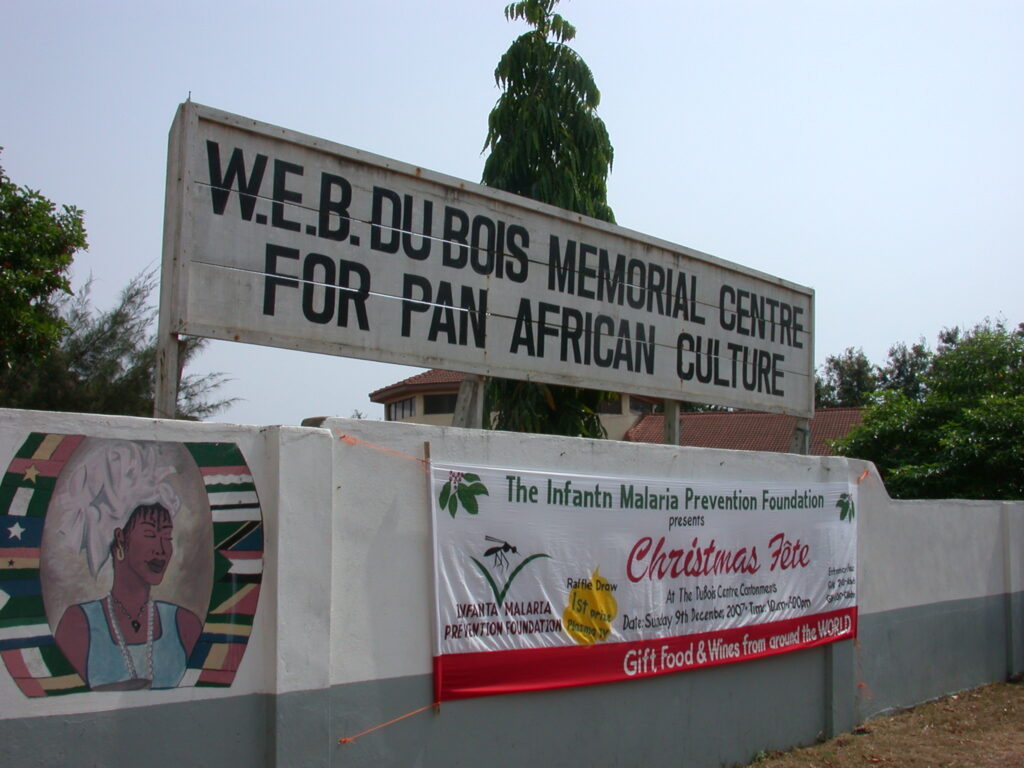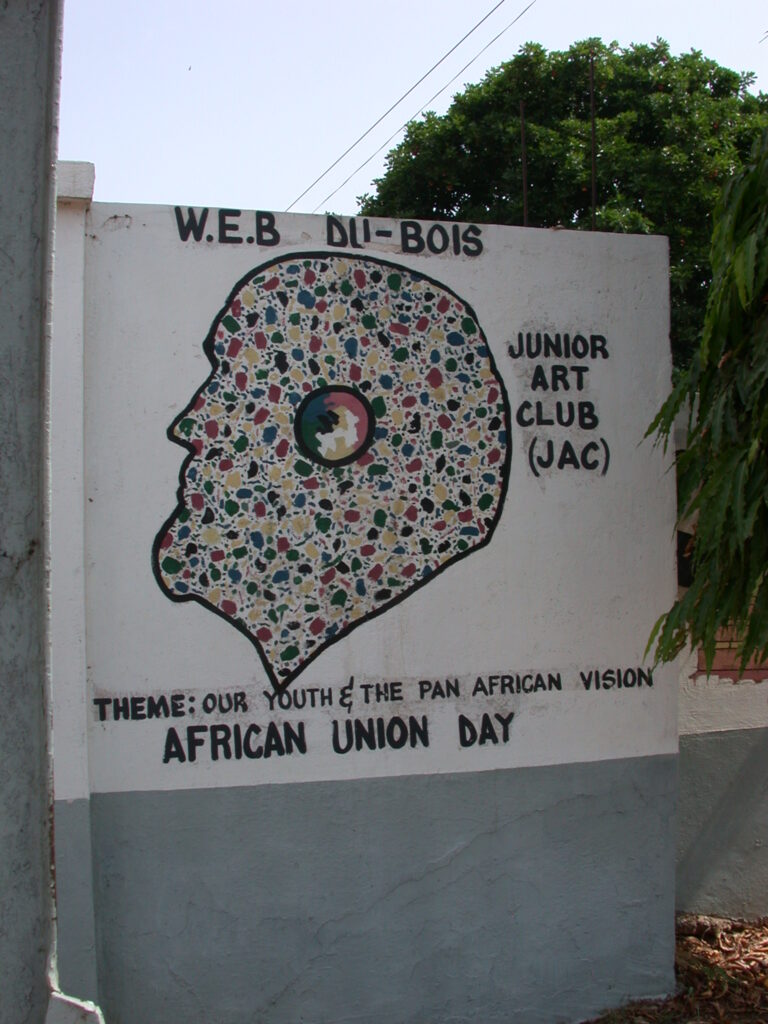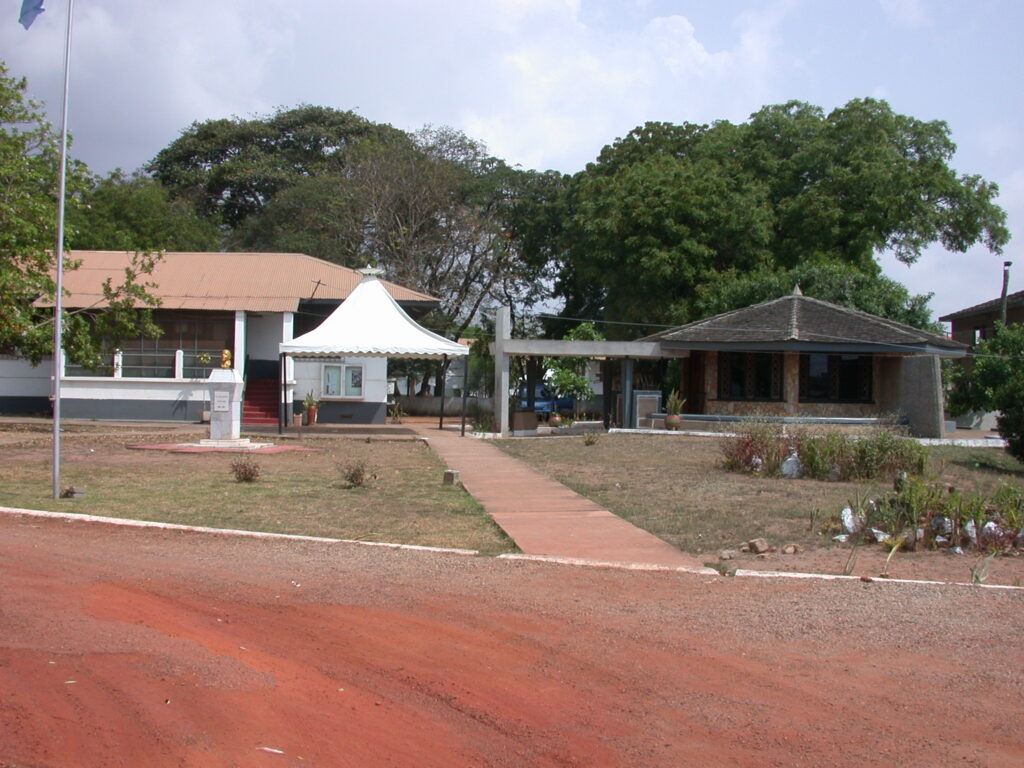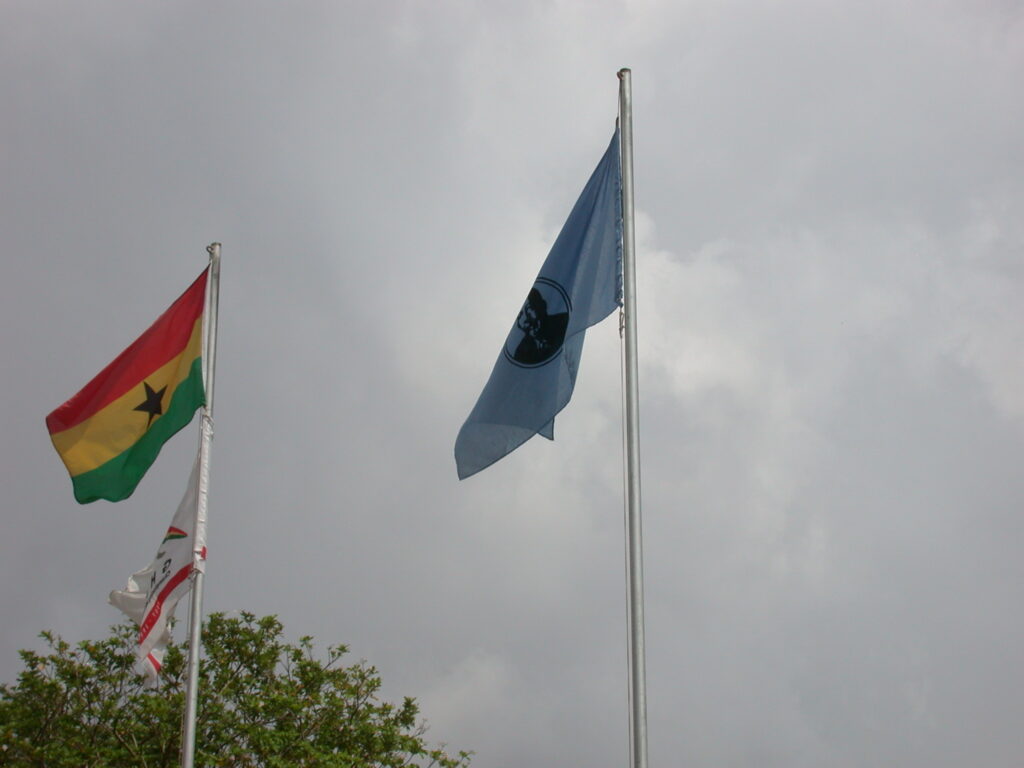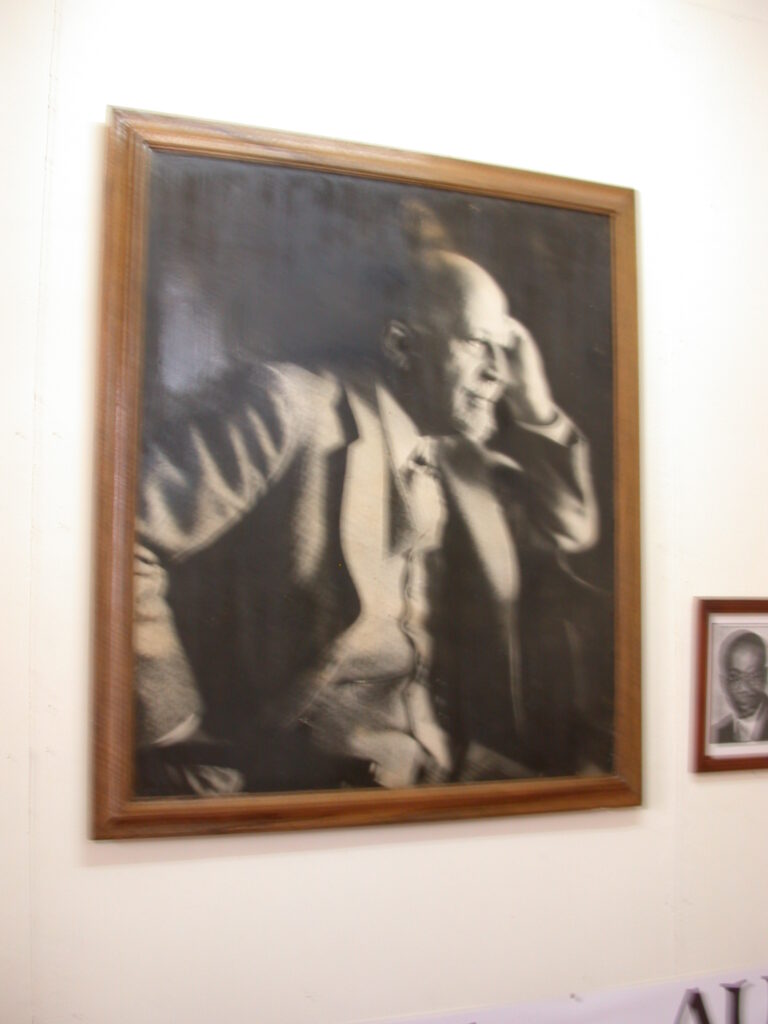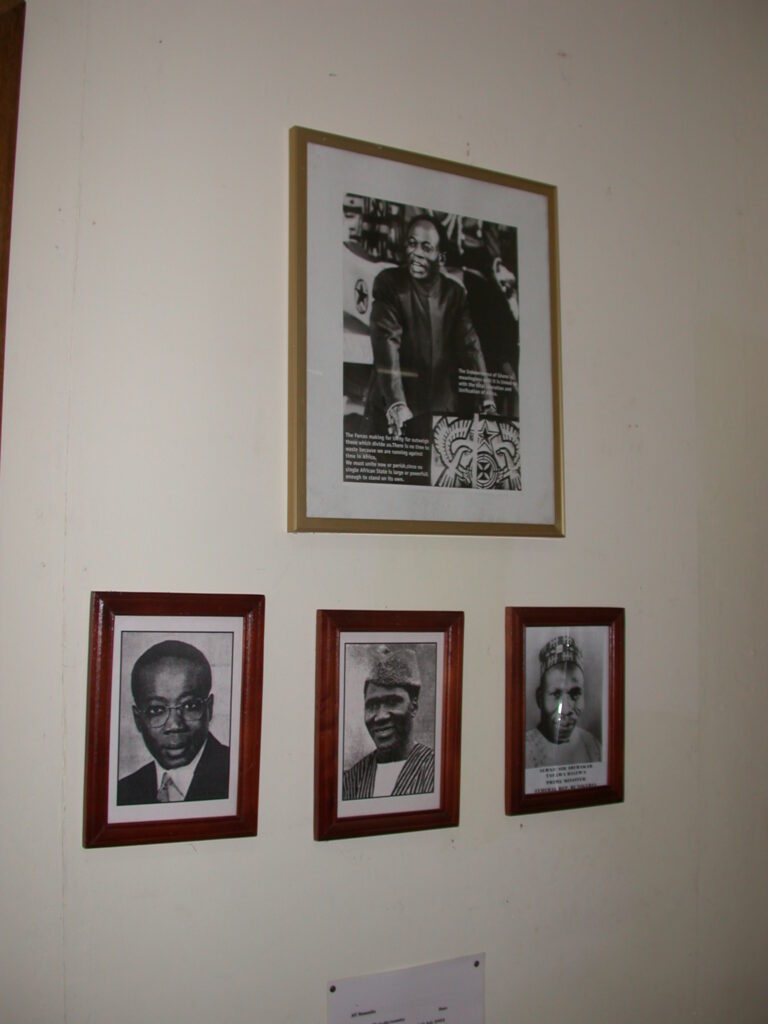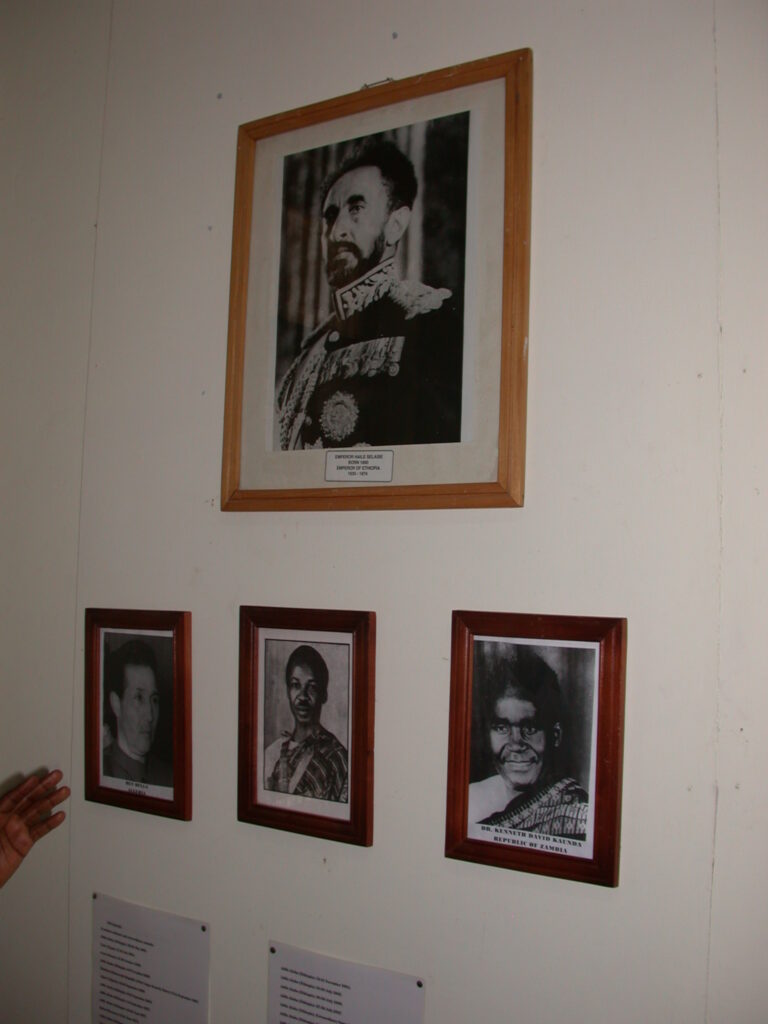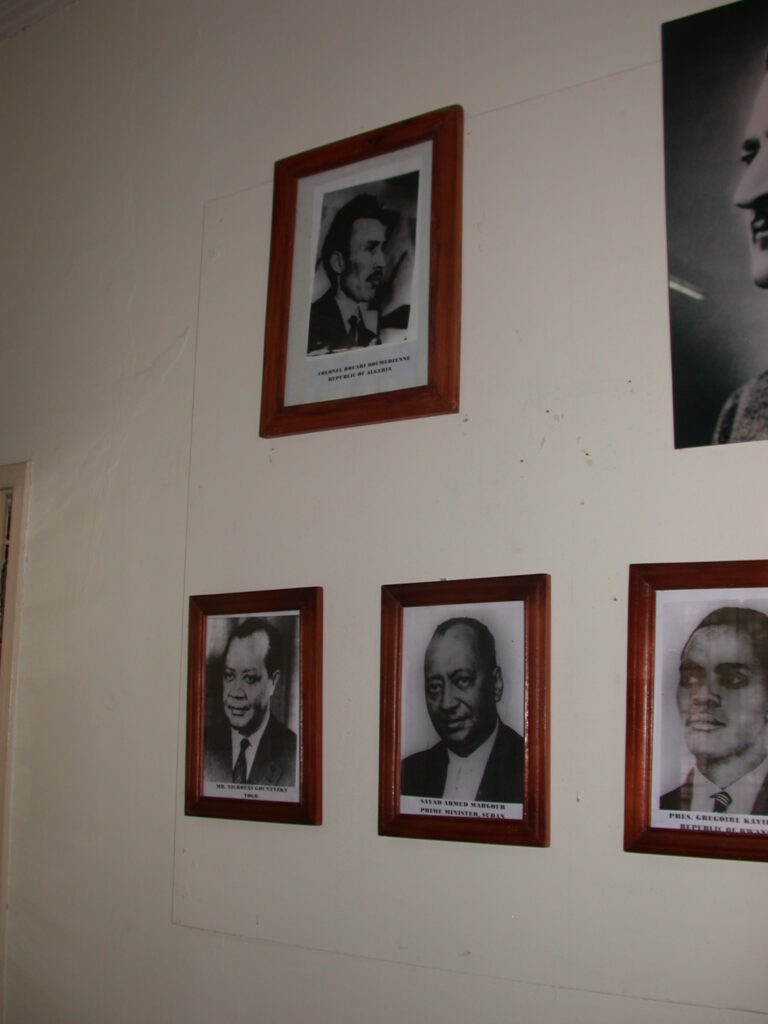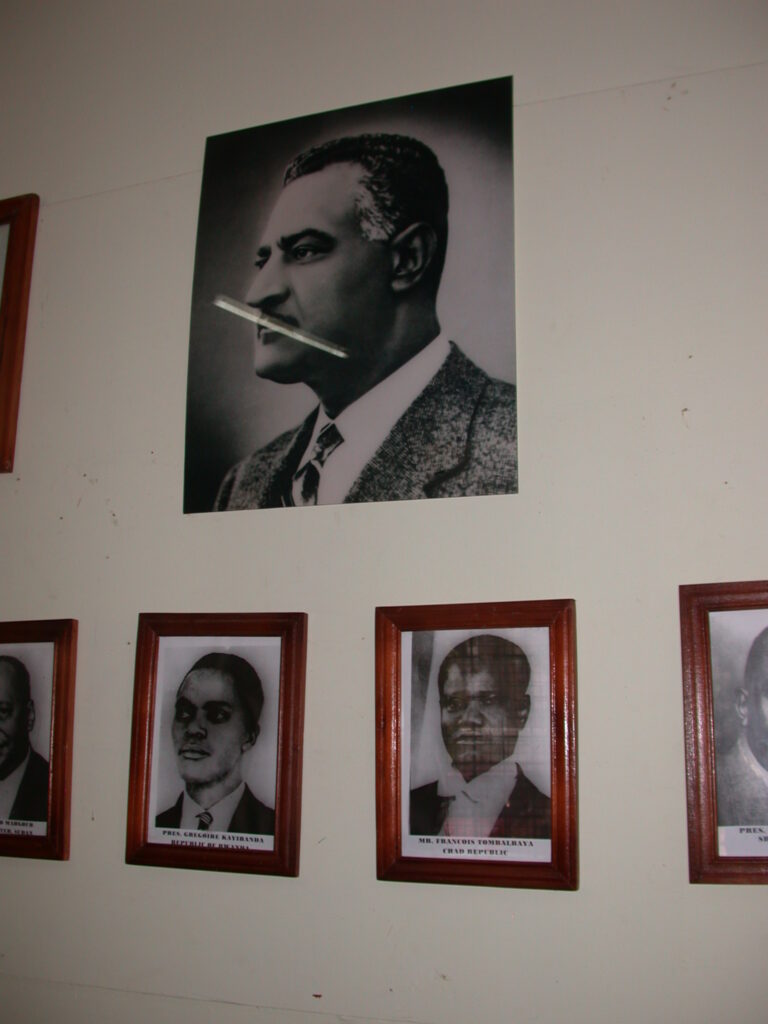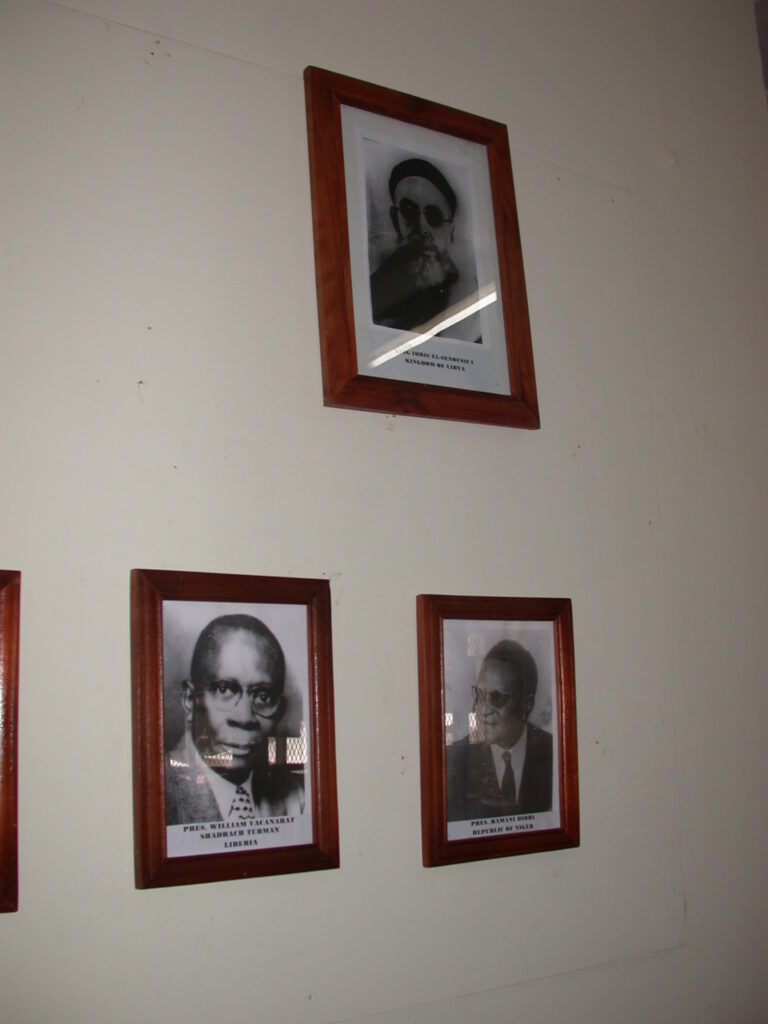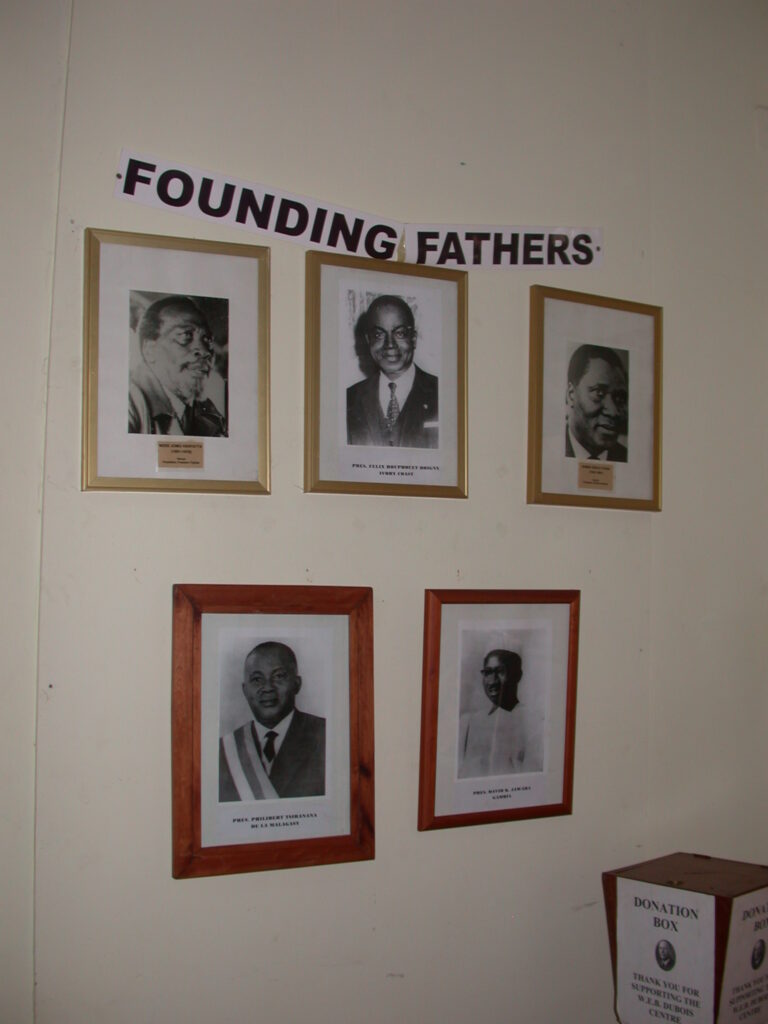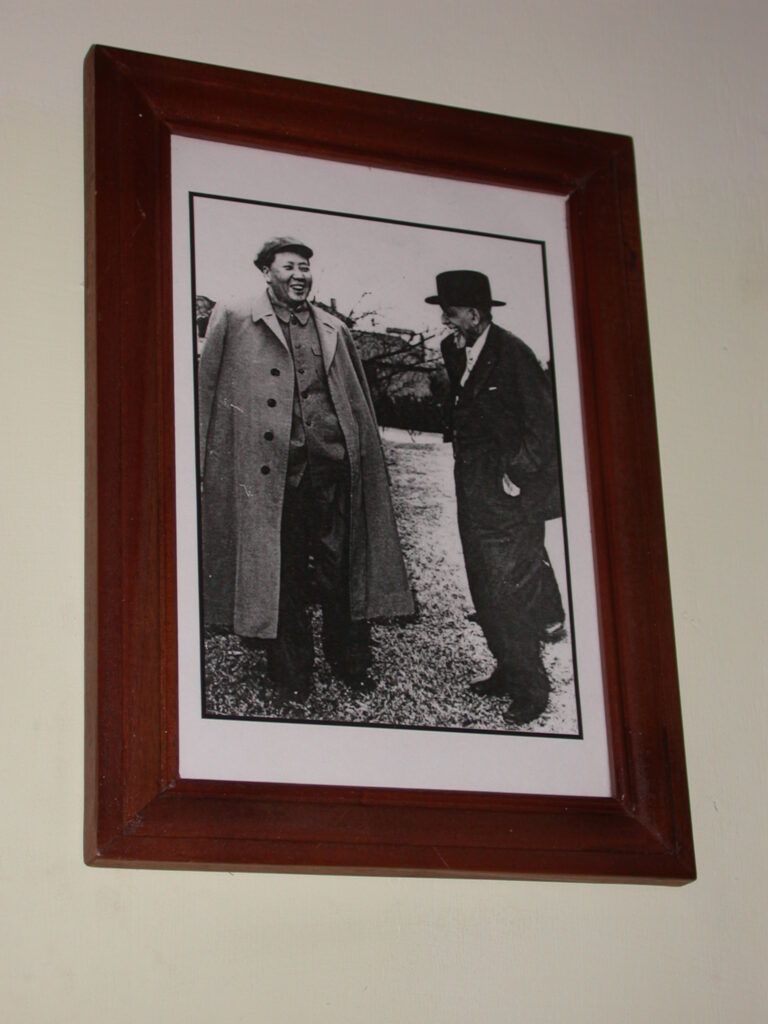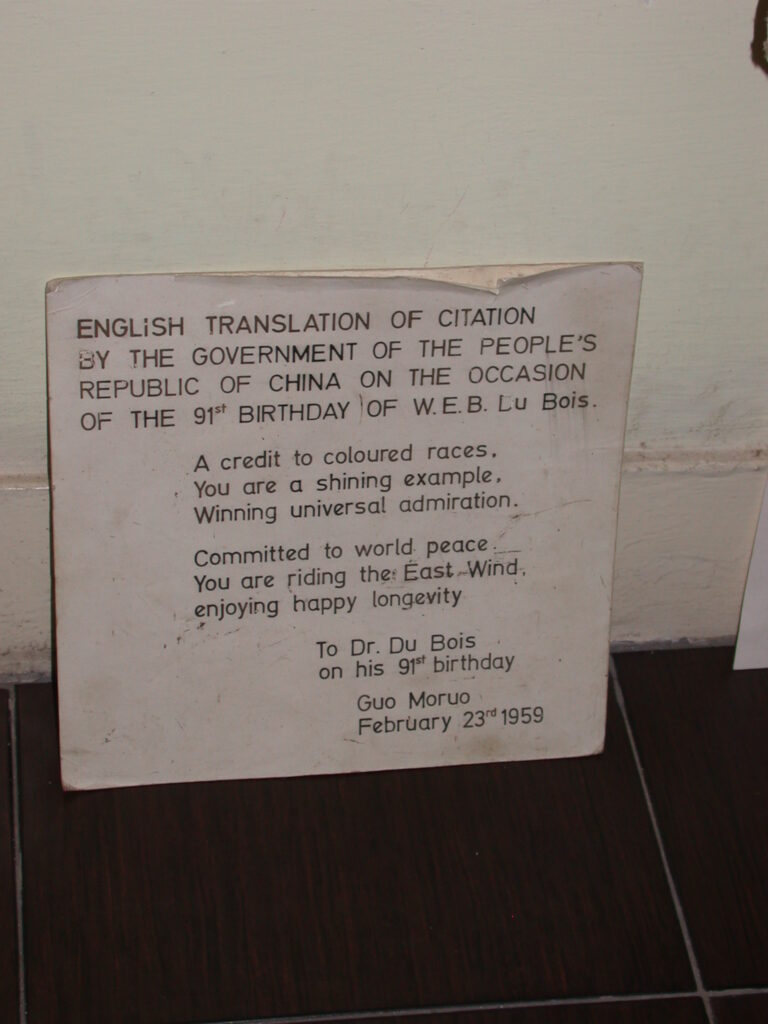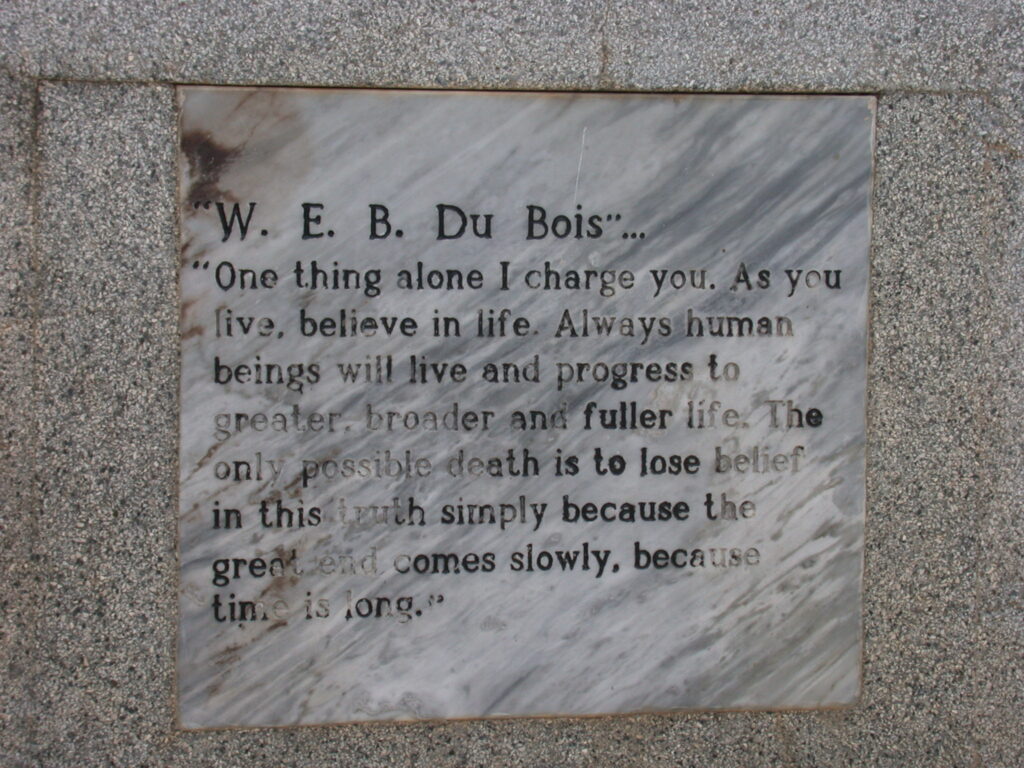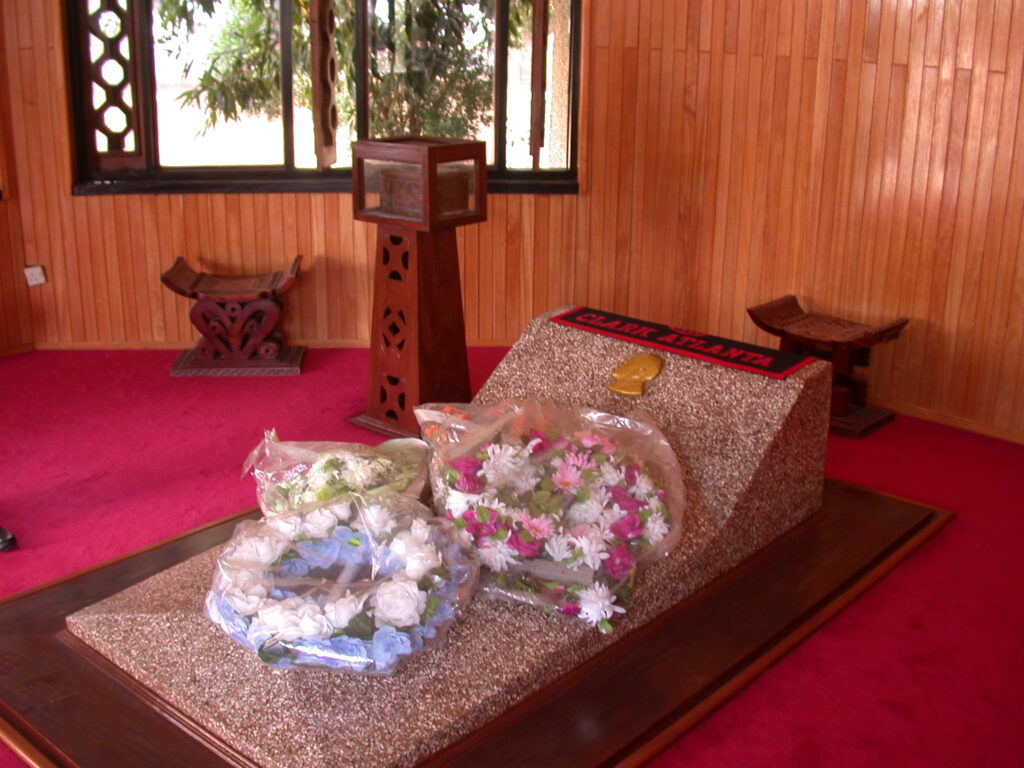Category Archives: W.E.B. Du Bois
W.E.B. Du Bois’ Essay “Of Work and Wealth” in “Darkwater”
Do You Know the Way to Lome?
After the W.E.B. Dubois experience, I went back to the Millennium Guesthouse to get my bags and off to the bus station for Lome.
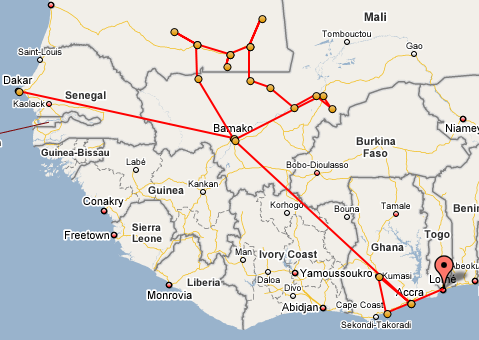
Lome is a pit. I took only this one picture and I managed to lose my Dell laptop power adapter.
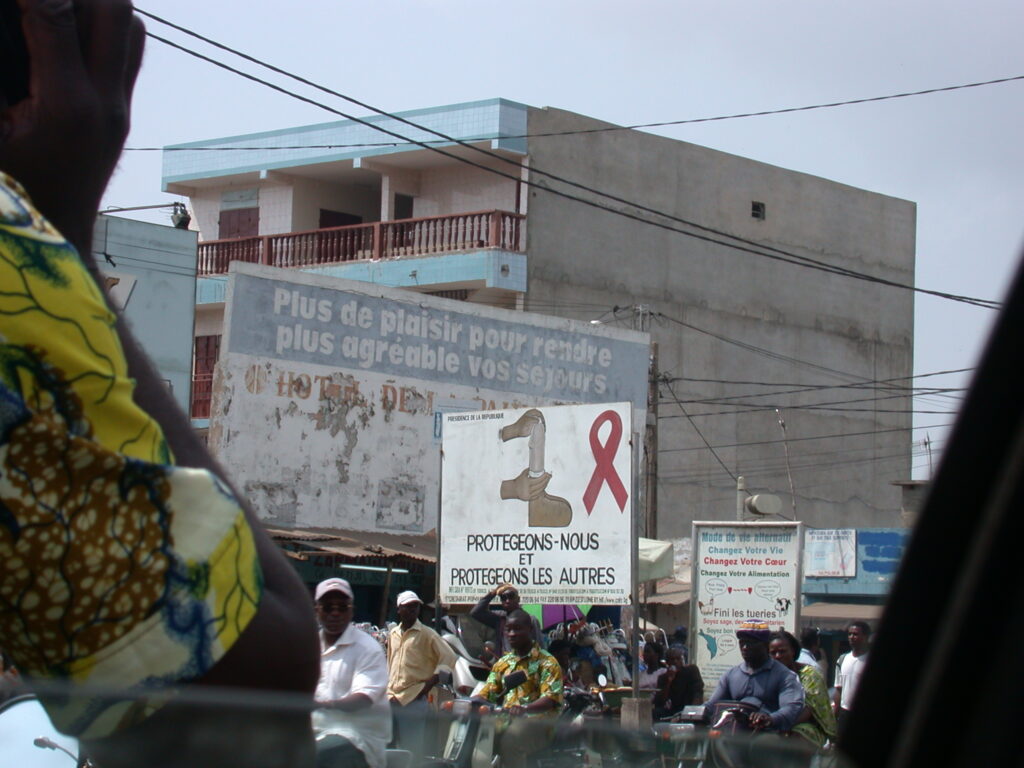
I have to say that crossing the border from Ghana to Togo, then arriving in the city of Lome, was my least favorite part of the trip so far. That probably has to do with the difficulty of getting across the border dragging my bags along uneven pavement and gravel without any helpful signage or people to make it any easier, not to mention random people yelling out “white man” at me as I walk by, the sun setting and my anxiety about getting a taxi to the hotel, negotiating a fair price with a driver who claims to know where we’re going but then somehow doesn’t know once we’re underway even though I’m giving quite clear directions from the travel guidebook. Worst of all though was losing my laptop power adapter somewhere along the way. That was a real disaster! I hoped maybe I had left it in the last taxi and that the driver would return it to me at the hotel, but no such luck. He tried to charge me more money because the guidebook said Hotel Digbawa instead of Hotel Degbava. Anyway, I checked into a strange room with a window out to the reception area of the hotel. The place was pretty dumpy. I did manage to walk to the bank in the morning, then to the anemic Musée Nationale de Togo.
W.E.B. DuBois Memorial Centre for Pan African Culture in Accra, Ghana
Slave Culture
Sterling Stuckey’s Notes on Slave Culture: Nationalist Theory and the Foundations of Black America is an impressive survey of the roots of African-American nationalism from the earliest slave period until the mid-twentieth century. The book weaves accounts of African rituals, customs, and spirituality into historical accounts of events in the United States. By drawing on the lives of Simon Brown, Denmark Vesey, David Walker, Henry Highland Garnet, Alexander Crummell, William Hamilton, Frederick Douglass, W.E.B. Du Bois, and Paul Robeson, the book provides access and perspective on the ongoing debate within African-American communities about integration versus nationalism. The author masterfully documents and explains the connections between African and African-American culture, both slave and free, and how they drive the political awareness and action of African-Americans and, to some extent, Africans everywhere.

